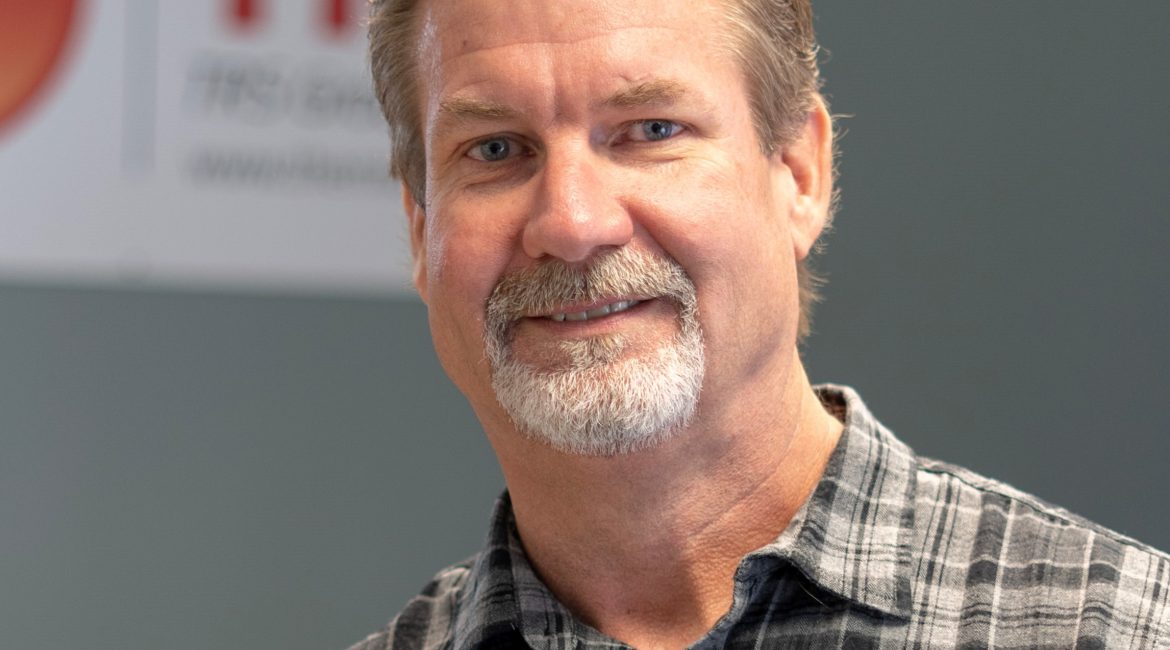Just back from extended travel, Eric Maki spoke to us about working at TRS.
Position: Managing Principal Engineer
Location: Tampa Bay, Florida
TRS Employee-Owner Year Started: 2007
Specialties: Engineering; equipment fleet management; procurement; optimization
Education: Bachelor’s Degree in Engineering from the University of Florida
TRS Group: What single thing have you been most proud of during your time at TRS?
Eric Maki: One thing? I’m not sure. What do most people say to a question like that?
TRS: It’s meant to get you thinking. Some people have specific projects or accomplishments they point to. For others, it’s not one thing, but a lot of things.
Eric: What I really enjoy doing is more on the optimization side and trying to figure out what we can do to make our processes better.
We had a phone call earlier today where we talked about a new electrical resistance heating (ERH) optimization tool that Emily [Crownover] has been working on with Mark Boulos, another TRS engineer. We’re adding current transducers (CTs) to our electrodes so we can see real time current, which helps optimization. That’s my favorite kind of work.
It’s sort of funny. I get excited when things aren’t going right. I get to make them work.
TRS: Can you think of a specific instance when you discovered how to optimize one of our technologies or a time when you had a real challenge in front of you and figured it out?
Eric: It’s an evolving thing. We received the OptiFlux patent, which is about optimizing our water drip system, about two years ago. We’re now using it to great effect. Keeping the electrode interface with soil moist improves performance and lowers costs. The OptiFlux patent is all about using the measured current. We developed these current monitors that give us the ability to add just the right amount of water. We have gotten to the point where we’re using the drip control to its full capacity.
I’m not saying it’s all me. There are engineers and operators on the job that are implementing it. My role is to identify ways that we can do a better job and provide that information to our people where they can use it.
Emily develops the tools and I’m an optimization resource.
"If something’s wrong, I want to understand why it’s not working and figure out how to fix it. "
TRS: How do you and Emily work together? Do you spend a lot of time collaborating?
Eric: Usually I’m doing spot reviews because my focus is the equipment side of it, but I do get involved in providing recommendations to project teams. The research team has been working hard to try to create this tool that we’re sharing with the rest of the company.
TRS: How did you find this role?
Eric: My first job out of school was at a company that did subsurface remediation. So, I’ve been doing this kind of remediation work pretty much my whole career. Through that, I have a pretty good handle on vapor recovery and vapor treatment.
I’m an environmental engineer by degree. At my first job, I spent a lot of time with oxidizers and was frustrated because they often didn’t work. I learned to read electrical schematics and start the trouble shooting there. If something’s wrong, I want to understand why it’s not working and figure out how to fix it.
Remediating underground is difficult. You can’t see what’s going on. We hypothesize why we’re seeing what we’re seeing. In the early days, we had some electrode failures. We figured out why and now we’re at the point where we’re just fine tuning the process.
TRS: Is the desire to fix things that are broken something that came about for you at a young age?
Eric: I don’t have any childhood stories of me doing anything dramatic. I wasn’t the best student in high school. I hit my stride in college. My dad wanted me to be a civil engineer, but that wasn’t really getting me excited. It was the right area, but environmental is what got me excited about engineering.
Environmental remediation was kind of a hot field when I got out of school. I’d like to think I had a great dream, but that’s how I ended up here. Chris Thomas (Director of Operations) and I started here on the same day. I was excited about heating the ground. After a few years, I left and spent five- or six-years doing consulting and decided it wasn’t for me. I really liked doing the soil heating, so I ended up calling Chris and came back.





